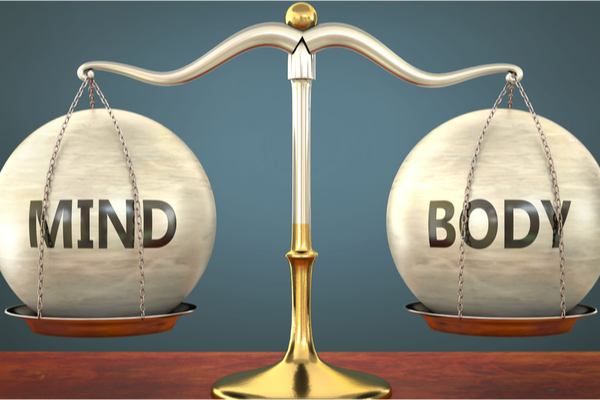Your mind, like your physical body, is always capable of change for better or for worse. And the degree and nature of that change has less to do with age and more to do with action. Exercise is the single most important thing anyone can do to improve brain function and resiliency to disease, according to Dr. Sanjay Gupta, Chief Medical Correspondent for CNN and author of the book, “Keep Sharp: Build a Better Brain at Any Age.”
It’s well known that if you work out consistently, you can enhance your body’s performance. For instance, with the right training program, you can improve how fast you run a mile or increase the amount of weight you can lift. However, studies have shown that if you do not exercise and spend hours sitting each day, it will lead to associated negative health implications such as higher risk of stroke.
What many people do not realize is that, just like your body, the performance of your mind improves with proper and consistent training. Likewise, when not given enough stimulus, your brain becomes less capable of reaching optimal levels and more susceptible to decline.
Why is exercise so important for your brain?
In his book, Gupta pointed to the control of blood sugar and reduction of inflammation: “Using sugar to fuel your muscles instead of sitting idle in your blood helps prevent dramatic glucose and insulin fluctuations … that increase the risk for dementia. Exercise also helps lower inflammation and that is critical in preventing dementia.” Beyond that, physical exercise has many other science-backed, brain-health benefits, like releasing mood-boosting brain chemicals and decreasing stress hormone production. Exercise also stimulates the release of growth factors involved in the healthy function and production of all cells, including brain cells.
This doesn’t mean you have to become an ultra marathoner or power lifter to reap the benefits, though. Ideally, you want to meet the World Health Organization’s recommendation of 150 minutes per week, but just a few minutes of exercise per day will boost brain health as well as your overall wellness. In fact, a recent study found that just 11 minutes of exercise per day can increase your life span. To fit in your allotted minutes of exercise and stick with it, explore different ways to get in motion so you don’t get bored.
The adage “use it or lose it” applies to both your body and brain.
Keeping your brain sharp means keeping it actively engaged. In his book, Gupta points to a French study of nearly half a million people, showing that those who retired at age 65 had a 15% lower risk of developing dementia than those who retired five years earlier. Research also reinforces that the quality of brain engagement matters for building brain resiliency over the long term. That means taking it a step further than the mere recall demands of a crossword puzzle and engaging in activities that require reasoning, problem-solving and acquiring new knowledge.
If you have always wanted to learn another language, this is a great impetus. Consider trying something new with an online cooking class, starting a new hobby or reading a nonfiction book that’s outside your scope of expertise. You might also want to try online brain games that involve speed training. Unlike puzzles that only help with working memory, speed-processing games have been shown to reduce your risk of developing dementia.
Don’t forget to get your Zzzz’s.
Sleep is not just a time of rest but an essential restoration process that impacts all systems of the body. This is especially true for the brain, which relies on quality deep sleep nightly for memory consolidation. The US Centers for Disease Control and Prevention reports that 1 in 3 Americans don’t get the recommended seven or more hours of sleep per night. The good news is that getting the regular daily exercise recommended above for better brain health will help you sleep better.
Another important aspect of resting your brain is to give it regular breaks from stress. This is vital for brain health as a high level of the stress hormone cortisol is linked to brain inflammation, cognitive decline and increased risk of Alzheimer’s disease. Thankfully, exercise has been shown to be an effective stress reliever. Other research-backed stress-relieving activities include meditation, deep breathing and mind-body practices like yoga and tai chi.
The bottom line: the mind-body connection isn’t just a cute catch phrase. Your brain and body are both part and parcel of the overall being that is YOU, so improving the health of one, benefits the other.
—
Photo Credit: GoodIdeas / Shutterstock.com
